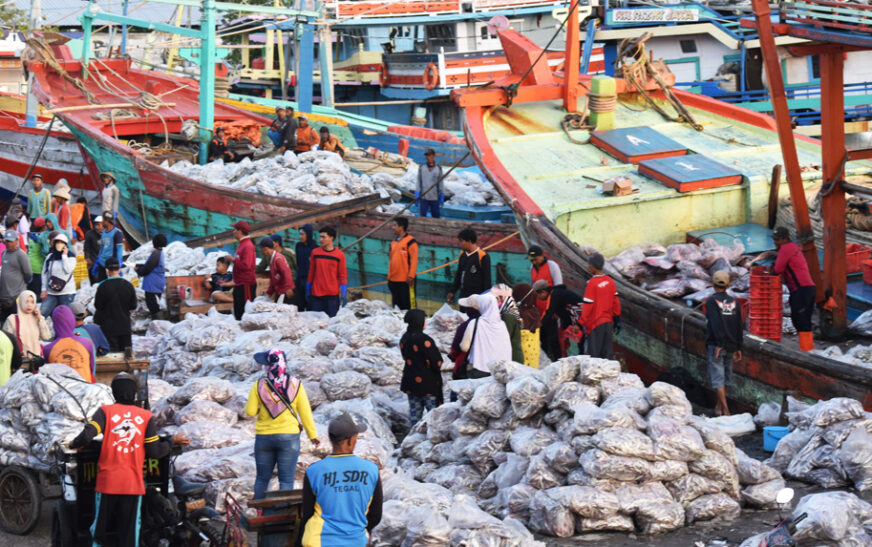Top 5 Benefits of Supporting Sustainable Fisheries Worldwide
Sustainable fisheries play a vital role in safeguarding our oceans while meeting the needs of communities that depend on marine resources. By adopting practices that prioritize environmental health and social equity, sustainable fisheries ensure the longevity of marine ecosystems and the livelihoods tied to them. Supporting these fisheries on a global scale has far-reaching benefits for individuals, industries, and the planet. Let’s explore the top five benefits of embracing sustainable fisheries worldwide.
1. Preservation of Marine Biodiversity
Sustainable fisheries prioritize the health of fish populations and their habitats, ensuring that marine ecosystems remain balanced and diverse. Overfishing often targets key species, causing a ripple effect that destabilizes food chains and harms other marine life.
By employing science-based quotas, marine protected areas, and selective fishing methods,
sustainable fisheries help maintain species populations. This approach not only safeguards biodiversity but also protects endangered species and vulnerable habitats like coral reefs and seagrass beds. A diverse marine ecosystem is more resilient to environmental changes and supports a wide range of organisms, from microscopic plankton to large predators like sharks and whales.
2. Securing Global Food Supplies
Fish and other seafood are critical sources of protein and nutrients for billions of people worldwide. However, overfishing threatens this essential food supply by depleting fish stocks faster than they can reproduce. Sustainable fisheries ensure that fish populations are managed responsibly, allowing stocks to replenish and remain available for future generations.
For communities in developing countries, particularly those in coastal regions, sustainable fisheries are essential for combating hunger and malnutrition. By maintaining stable fish populations, these practices support food security and reduce the risk of resource scarcity, even as global demand for seafood continues to grow.
3. Economic Stability for Fishing Communities
Millions of people around the world depend on fishing for their livelihoods, particularly in small-scale and artisanal fisheries. Overfishing and habitat degradation can lead to declining catches, forcing many fishers into financial hardship. Sustainable fisheries create long-term economic stability by protecting fish stocks and ensuring fair access to resources.
Additionally, fisheries that adopt sustainable practices often gain access to lucrative markets where consumers demand eco-certified seafood. Certifications like those from the Marine Stewardship Council (MSC) or Aquaculture Stewardship Council (ASC) allow fisheries to command higher prices for their products, boosting incomes for workers and communities.
4. Mitigating Climate Change Impacts
Healthy oceans play a crucial role in regulating the Earth’s climate. Marine ecosystems, including fish populations, seagrass meadows, and coral reefs, absorb carbon dioxide and help mitigate the effects of climate change. Overfishing and habitat destruction disrupt these natural
processes, reducing the ocean’s ability to act as a carbon sink.
Sustainable fisheries contribute to climate resilience by preserving marine habitats and maintaining ecological balance. Practices such as reducing bycatch and avoiding destructive methods like bottom trawling minimize environmental harm, ensuring that the ocean continues to absorb carbon effectively.
In the face of climate change, supporting sustainable fisheries is a proactive step toward protecting both marine ecosystems and the planet’s climate stability.
5. Promoting Ethical and Responsible Seafood Consumption
Modern consumers are increasingly aware of the environmental and ethical implications of their food choices. Supporting sustainable fisheries allows individuals to enjoy seafood without contributing to overfishing or environmental degradation. By choosing sustainably sourced products, consumers send a clear message to businesses and policymakers that responsible practices are a priority.
Eco-labels and certifications make it easier for shoppers to identify sustainable seafood options. When demand for these products grows, it incentivizes more fisheries to adopt sustainable practices, creating a positive feedback loop that benefits both the environment and the industry.
Furthermore, sustainable fisheries often emphasize equitable labor practices, ensuring that workers are treated fairly and that communities receive their fair share of economic benefits.
Conclusion
Sustainable fisheries are essential for protecting marine ecosystems, securing global food supplies, supporting economic livelihoods, mitigating climate change, and promoting ethical consumption. By supporting these practices, individuals, governments, and industries can contribute to a healthier and more sustainable future for our oceans.
In a world where overfishing and environmental degradation threaten both nature and humanity, sustainable fisheries offer hope. Every effort to support them—whether through consumer choices, advocacy, or policy changes—helps create a more balanced relationship with our planet’s most precious resource: the ocean.

![Best Wedding Photography | Cam Studio Lahore]()









